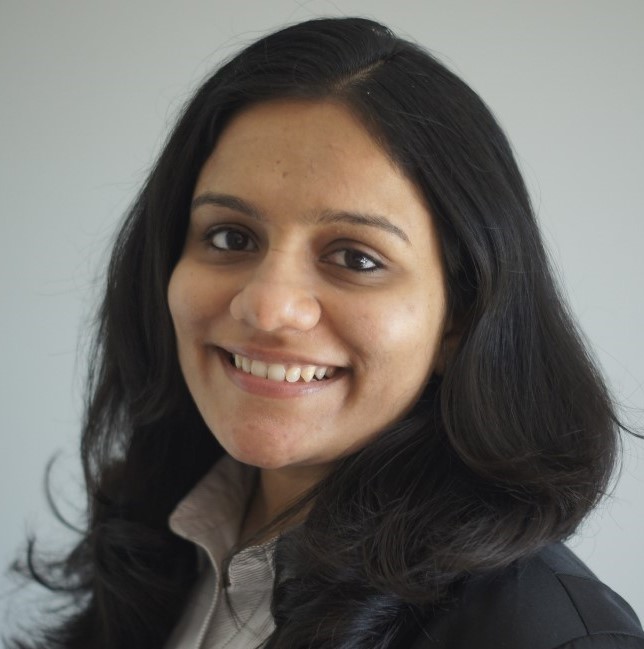October 23, 2024

This month’s member spotlight will highlight a pair of PIDS members who recently launched a new initiative within the Society.
Preeti Jaggi, MD, is Director of Antimicrobial Stewardship at Children’s Healthcare of Atlanta. She graduated from medical school at The Ohio State University, completed her pediatrics residency at Loyola University Medical Center, and completed her infectious diseases fellowship at Northwestern University in Chicago.

Shreya Doshi, MD, is a third-year pediatric infectious diseases fellow at the Children’s National Hospital in Washington, DC. She attended medical school in Mumbai and is currently pursuing an MPH in Global and Environmental Health at the George Washington University alongside her fellowship.
Together, Drs. Jaggi and Doshi have established the “Sustainabil-ID” subcommittee, which currently has over 170 members subscribed to its listserv. This initiative focuses on researching the environmental impact of healthcare practices through an infectious diseases lens and exploring methods to modify these practices for the benefit of children and their planet.
Why Pediatric ID?
Preeti Jaggi: I enjoyed the complex cases in infectious diseases as a medical student, loved working with children, and was really inspired by an excellent ID clinician I worked with. I also encountered a patient with pneumococcal meningitis early in my intern year. That same year, Prevnar was introduced. I got to see the incidence of pneumococcal meningitis decrease and really liked that ID clinicians had the “big picture” perspective on patients. They were concerned about prevention, high-value treatment, and considered the whole patient, not just one organ.
Shreya Doshi: Growing up in Mumbai, I wanted to specialize in a field that had a large impact on the community. There’s no other field that ties in with public health better than infectious diseases! It was a gradual, but natural path.
Where have you taken your ID focus?
PJ: Many of our current practices in infectious diseases are already sustainable, but we are not systematically documenting the greenhouse gas emissions savings from these efforts. We are encouraging practitioners to begin tracking these metrics. For example, this could involve calculating transportation-related travel savings (using the EPA calculator), greenhouse gas emissions from solid waste in health centers (using a free online calculator), or savings from reduced hospital stays as a result of improved care.
SD: Participating in Sustainabil-ID as a new subcommittee is incredibly exciting. We envision Sustainabil-ID evolving into a research collaborative network, with aspirations to create educational modules and more. Sustainability is a concept that can be integrated into any infectious diseases practice, regardless of the area of focus. Since the concept is relatively new to some, we face minor challenges but building it together has been highly rewarding.
What is a recent development in peds ID you are working on?
PJ: We recently worked on amoxicillin waste described by community pharmacists. A great solution is to switch to chewable amoxicillin tablets for developmentally normal kids over age two; this would also save a lot of plastic from the dose-dispensing devices required for liquid medication, and it allows for more precise medication delivery. We also recently described steps that children’s hospitals are taking to mitigate their own emissions. Bottom line… we could be doing a lot more!
SD: About a year ago, we started Sustainabil-ID with little support and a small but determined group of ID physicians and pharmacists who met virtually once a month. We organized a series of articles on healthcare sustainability with JPIDS (Healthcare Sustainability to Address Climate Change: Call to Action for the Infectious Diseases Community; Prescribing a Green Future: A Review of Antimicrobial Waste in Pediatric Hospitals and Practices to Promote Healthcare Sustainability) and articles in OFID on greening infection prevention and control practices and environmental sustainability in the outpatient setting that have already been published. Greening laboratories will be published shortly. You can also give a listen to our febrile podcast episode.
What do you enjoy most about being a PIDS member? Why do you continue to renew your membership?/ Why did you decide to become a member?
PJ: I enjoy the camaraderie and the willingness of the group to venture into new areas (like multisystem inflammatory syndrome from COVID-19 and antibiotic stewardship). I can think of no better specialty to work on healthcare sustainability.
SD: PIDS offers excellent networking opportunities. When I shared my interests with my mentor, Rana Hamdy, she connected me with Preeti, whom she knew through the PIDS-SHARPS Collaborative. Many members from across the country have supported the Sustainabil-ID initiative, and we are grateful for their contributions. Starting in 2025, PIDS will have a formal Sustainabil-ID subcommittee, and we plan to host monthly webinars. We encourage everyone to join us! If interested, please email us at sustainabilityiddocs@gmail.com.